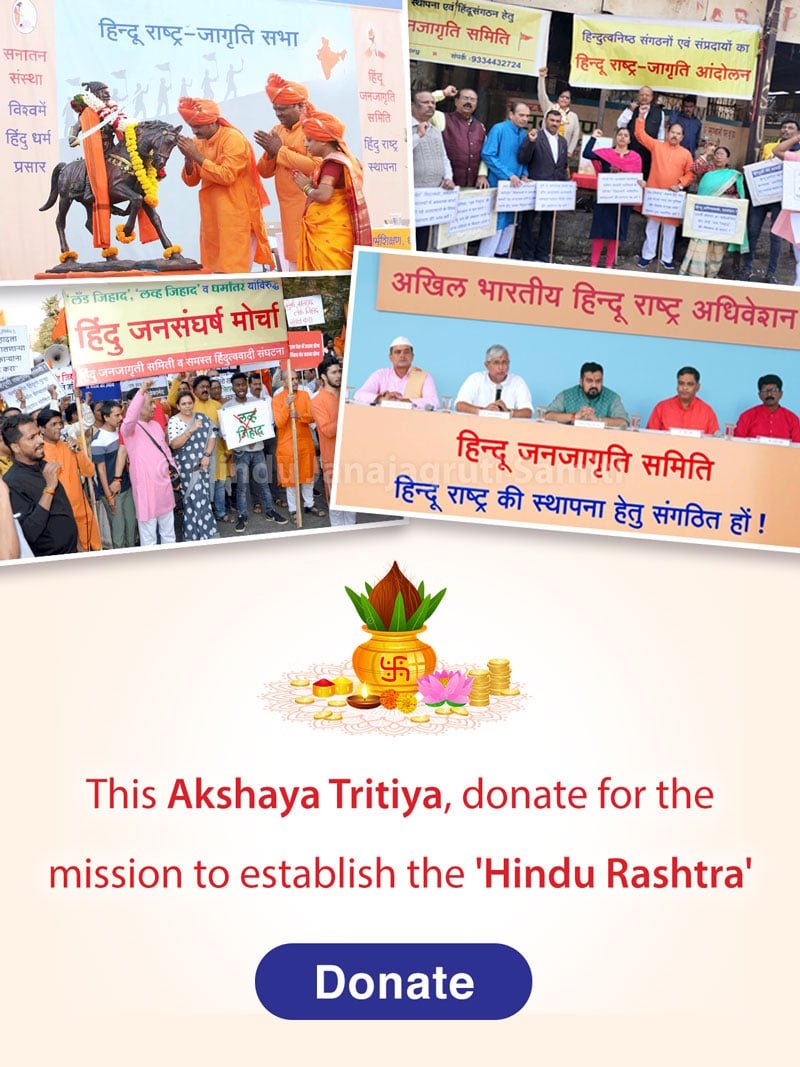Romain Rolland (1866-1944), French Nobel laureate, professor of the history of music at the Sorbonne and thinker:
Religious faith in the case of the Hindus has never been allowed to run counter to scientific laws, moreover the former is never made a condition for the knowledge they teach, but there are always scrupulously careful to take into consideration the possibility that by reason both the agnostic and atheist may attain truth in their own way. Such tolerance may be surprising to religious believers in the West, but it is an integral part of Vedantic belief.
The greatest human ideal is the great cause of bringing together the thoughts of Europe and Asia; the great soul of India will topple our world.
Our Christian religions have tried in vain, when there were no other choices open to them, to adapt themselves to the progress of science.
Erwin Schroedinger (1887-1961), Austrian theoretical physicist, was a professor at several universities in Europe. He was awarded the Nobel Prize in Quantum Mechanics, in 1933:
The unity and continuity of Vedanta are reflected in the unity and continuity of wave mechanics. In 1925, the world view of physics was a model of a great machine composed of separable interacting material particles.
Dr. Carl Sagan, (1934-1996) famous astrophysicist:
The Hindu religion is the only one of the world’s great faiths dedicated to the idea that the Cosmos itself undergoes an immense, indeed an infinite, number of deaths and rebirths. It is the only religion in which the time scales correspond, to those of modern scientific cosmology. A millennium before Europeans were wiling to divest themselves of the Biblical idea that the world was a few thousand years old, the Mayans were thinking of millions and the Hindus billions.
Count Hermann Keyserling (1880-1946) philosopher, author:
Hinduism at its best has spoken the only relevant truth about the way to self-realization in the full sense of the word. Hinduism has produced the profoundest metaphysics that we know of.
The absolute superiority of India over the West in philosophy; poetry from the Mahabharata, containing the Bhagavad-Gita, "perhaps the most beautiful work of the literature of the world".
Every would be Christian priest would do well to sacrifice a year of his theological studies in order to spend his time on the Ganges; here he would discover what piety means.
Mark Twain (1835-1910), one of the most widely loved and celebrated American writers since his first books were released in the late 1860s :
Land of religions, cradle of human race, birthplace of human speech, grandmother of legend, great grandmother of tradition. The land that all men desire to see and having seen once even by a glimpse, would not give that glimpse for the shows of the rest of the globe combined – India.
Dr. Arnold Joseph Toynbee (1889-1975) the great British historian:
His massive research was published in 12 volumes between 1934 and 1961 as `A Study of History’. Author of several books, including Christianity: Among the Religions of the World and One World and India. Toynbee was a major interpreter of human civilization in the 20th century.
‘It is already becoming clear that a chapter which had a Western beginning will have to have an Indian ending if it is not to end in self-destruction of the human race. At this supremely dangerous moment in human history, the only way of salvation is the ancient Hindu way. Here we have the attitude and spirit that can make it possible for the human race to grow together in to a single family. So now we turn to India.
This spiritual gift, that makes a man human, is still alive in Indian souls. Go on giving the world Indian examples of it. Nothing else can do so much to help mankind to save itself from destruction.
‘This is a hard saying for adherents of the higher religions of the Judaic family (Judaism, Christianity, and Islam), but it is a truism for Hindus. The spirit of mutual good-will, esteem, and veritable love … is the traditional spirit of the religions of the Indian family. This is one of India’s gifts to the world. At the close of this century, the world would be dominated by the West, but that in the 21st century "India will conquer her conquerors."
Julius Robert Oppenheimer (1904-1967) Scientist, philosopher, bohemian, and radical:
The juxtaposition of Western civilization’s most terrifying scientific achievement with the most dazzling description of the mystical experience given to us by the Bhagavad Gita, India’s greatest literary monument.
Sir Charles Eliot (1862-1931), British diplomat and colonial administrator, a famous scholar and linguist of Oxford:
Compared to Islam and Christianity, Hinduism’s doctrines are extraordinarily fluid, and multiform. The Hindu has an extraordinary power of combining dogma and free thought, uniformity, and variety. Utmost latitude of interpretation is allowed.
Niels Henrik David Bohr (1885-1962) Danish nuclear physicist who developed the Bohr model of the atom:
I go into the Upanishads to ask questions.
Annie Besant (1847-1933) was an active socialist on the executive committee of the Fabian Society along with George Bernard Shaw:
After a study of some forty years and more of the great religions of the world, I find none so perfect, none so scientific, none so philosophical and none so spiritual that the great religion known by the name of Hinduism. Make no mistake, without Hinduism, India has no future. Hinduism is the soil in to which India’s roots are stuck and torn out of that she will inevitably wither as a tree torn out from its place. And if Hindus do not maintain Hinduism who shall save it? If India’s own children do not cling to her faith who shall guard it. India alone can save India and India and Hinduism are one.
Alfred B. Ford grandson of Henry Ford (founder of the Ford Motor), and Trustee member of Ford Motor Company:
For me the most important thing is to spread the Hindu knowledge about the soul. This is more important than any other knowledge and is my main priority. The older I get, the more Hindu I become.
Albert Einstein, (1879-1955) physicist:
When I read the Bhagavad Gita and reflect about how God created this universe everything else seems so superfluous.
Klaus L. Klostermaier, professor of Religious Studies at the University of Manitoba:
Hinduism has proven much more open than any other religion to new ideas, scientific thought, and social experimentation. Many concepts like reincarnation, meditation, yoga and others have found worldwide acceptance. It would not be surprising to find Hinduism the dominant religion of the twenty-first century.
George Bernard Shaw, (1856-1950) a Nobel Laureate in Literature:
The Indian way of life provides the vision of the natural, real way of life. Hinduism is so elastic and so subtle that the most profound Methodist, and crudest idolater, is equally at home with it.
Christopher W. B. Isherwood (1904-1986) Translator, biographer, novelist, and playwright:
"I believe the Gita to be one of the major religious documents of the world. If its teachings did not seem to me to agree with those of the other gospels and scriptures, then my own system of values would be thrown into confusion, and I should feel completely bewildered. The Gita is not simply a sermon, but a philosophical treatise."
Muhammad Dara Shikoh (1627-1658 AD) the favorite Sufi son of Moghul emperor, Shah Jehan:
"After gradual research; I have come to the conclusion that long before all heavenly books, God had revealed to the Hindus, through the Rishis of yore, of whom Brahma was the Chief, His four books of knowledge, the Rig Veda, the Yajur Veda, the Sama Veda and the Atharva Veda."
"The Quran itself made veiled references to the Upanishads as the first heavenly book and the fountainhead of the ocean of monotheism."
Stephen Cross, in his book on Hinduism, pg 1:
"It is no secret that we in the West live in a time of spiritual crisis. Western civilization has been guided by Christianity. Now it appears that this period is drawing to a close. Both religious institutions and social structures are in disarray. A great many things that were considered basic assumptions of western thought are being challenged.
Robert R. C. Zaehner (1913-1974) British historian of religion:
"In the family of religions, Hinduism is the wise old all-knowing mother. Its sacred books, the Vedas, claim, ‘Truth is one, but sages call it by different names.’ If only Islam, and all the rest of the monotheistic ‘book’ religions, had learned that lesson, all the horror of history’s religious wars could have been avoided. Which other religion has its God say, as Krishna does in the Bhagavad Gita, ‘All paths lead to me.’
"If only the Church had the sense to allow so many different and seemingly contradictory approaches to God, how much saner its history would have been!"
Alan Watts (1915-1973) a professor, graduate school dean and research fellow of Harvard University:
"To the philosophers of India, however, Relativity is no new discovery, just as the concept of light years is no matter for astonishment to people used to thinking of time in millions of kalpas, (A kalpa is about 4,320,000 years).
Huston Smith born in China to Methodist missionaries, a philosopher, most eloquent writer, world-famous religion scholar who practices Hatha Yoga:
"In Hinduism, ‘The invisible excludes nothing’, the invisible that excludes nothing is the infinite – the soul of India is the infinite."
"The Vedic science movement began in 1893 when Swami Vivekananda (1863-1902) addressed the World Parliament of Religions in Chicago. In that famous address, he sought to present Hinduism not just as a fulfillment of all other religions, but also as a fulfillment of all of science. Vivekananda claimed that only the spiritual monism of Advaita Vedanta could fulfill the ultimate goal of natural science, which he saw as the search for the ultimate source of the energy that creates and sustains the world.
"2. Vivekananda and Aurobindo lit the spark that has continued to fire the nationalist imagination, right to the present time. The Hindu literature of the 19th and early 20th centuries, especially the writings of Dayanand Saraswati, S. Radhakrishnan and the many followers of Vivekananda, is replete with celebration of Hinduism as a "scientific" religion.

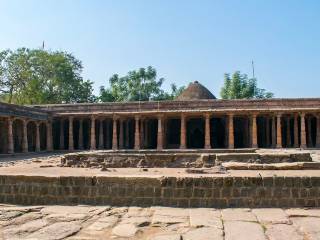 Madhya Pradesh: ASI survey of Bhojshala complex in Dhar to start on March 22
Madhya Pradesh: ASI survey of Bhojshala complex in Dhar to start on March 22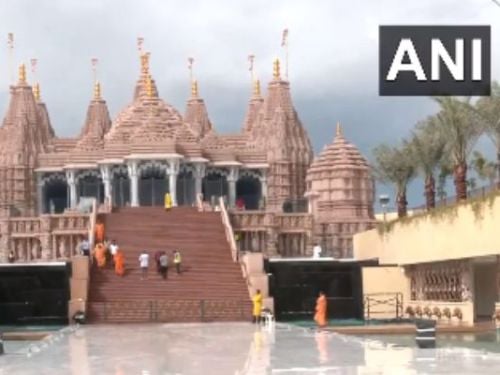 PM Modi to inaugurate the first traditional Hindu Mandir in Abu Dhabi
PM Modi to inaugurate the first traditional Hindu Mandir in Abu Dhabi Tirupati Devasthanams to establish platform for non-Hindus to adopt Sanatan Dharma
Tirupati Devasthanams to establish platform for non-Hindus to adopt Sanatan Dharma Baghpat court gives ownership rights of Mahabharata era Lakshagriha to Hindu side
Baghpat court gives ownership rights of Mahabharata era Lakshagriha to Hindu side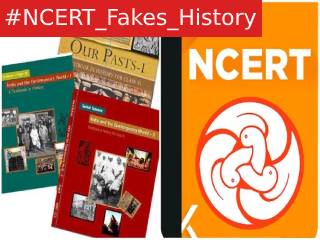 Misleading claims about Brahmins removed in rationalised NCERT textbooks
Misleading claims about Brahmins removed in rationalised NCERT textbooks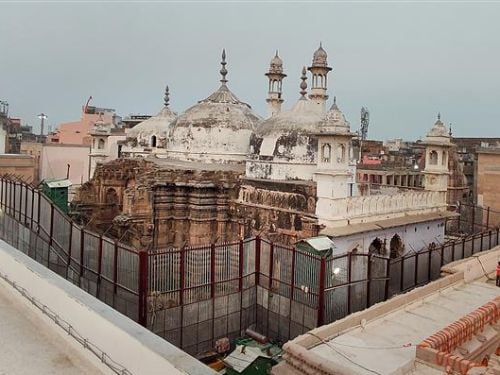 Big victory to Hindus as court allows puja in Vyas Ji Ka Tehkhana at Gyanvapi complex
Big victory to Hindus as court allows puja in Vyas Ji Ka Tehkhana at Gyanvapi complex